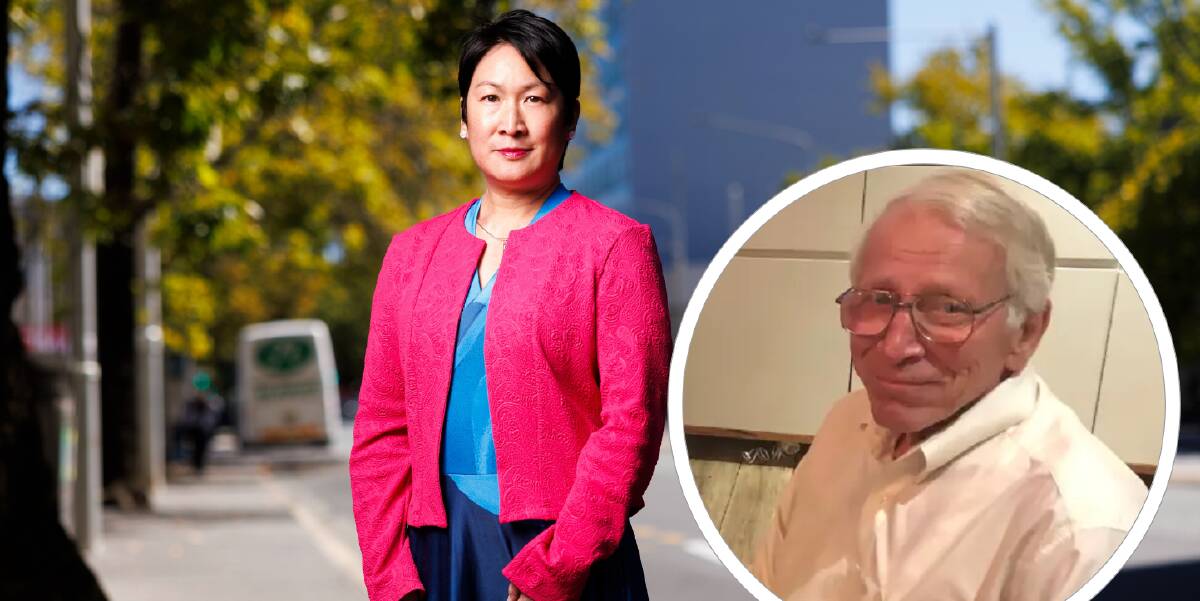Tougher laws to limit gamblers' losses on poker machines would be a "helpful step", the head of the ACT's Gambling and Racing Commission believes.
Yu-Lan Chan said she would welcome rules that would limit how much gamblers could lose on gaming machines in the ACT.
The ACT government is considering how bet and load-up limits could be applied to poker machines in the territory.
Ms Chan also acknowledged it had taken the commission a long time to investigate a Canberra club over allegations it had failed to stop a problem gambler from losing money on poker machines.
The commission has been fiercely criticised over its yet-to-be-finished four-year investigation following the suicide of deeply-indebted gambler Raimon "Ray" Kasurinen.
His family had alleged the Hellenic Club of Canberra was begged to bar the man from the poker machines but it didn't do so before he took his own life on March 31, 2020.
The club denies any wrongdoing.
"I understand that four years is a long time," the commission's chief executive said.
"I can empathise with the family."
But Ms Chan said the law didn't allow the commission to disclose where they were in an investigation.
"It binds us on what we can and can't say," she said.
She said the result of the investigation was "still some way off".
ACT Attorney-General Shane Rattenbury said he would consider getting the law changed so more people could be kept informed about how an investigation was going.

"I can understand why the family is so upset because they just want to be kept updated," Mr Rattenbury told The Canberra Times.
He said the circumstances of the case showed the secrecy provisions did not meet community expectations. He flagged his willingness to push for a law change.
"The clear advice from the Gaming and Racing Commission - and I've sought information from them in light of this matter - is that they feel heavily restricted on the information that they can share," he said.
"So we will need to consider whether there's going to be legislative change. I've asked the commission for advice on that."
Mr Rattenbury said the commission had not advised him of any resourcing issue (like a lack of money or staff) but said complex investigations were slow to complete.
"One of the questions is whether it is about having resources in government, or having money where if a really complex matter comes on, one can bring in external support for a spike in activity," he said.
"There is some suggestion of an increasing number of complaints which may create some resource pressures as well. So we'll need to look at that."
Clubs are not meant to encourage people to gamble. Outlining the claim against the Hellenic Club, the dead man's widow, Marlene Kasurinen, who also gambled heavily, said staff would deliver "milkshakes, hot dogs, toasted sandwiches, pastries, cheese, cake, ice cream" free of charge, as they played its machines.
The bereaved family have expressed their anger in emails to the commission.
"I consider your agency to be completely incompetent and unworthy of public support or public funding," Mr and Mrs Kasurinen's son-in-law, former policeman David Chambers, said. He had "lost all confidence in your agency".
The Canberra Times asked Ms Chan five times: "Are you doing a good job?"
She never gave an unequivocal yes-or-no answer but said: "I believe we are making a difference."
Mr Rattenbury said it was important the commission complete investigations independently of the government, but there did need to be a further examination of whether the balance between protecting privacy and providing detail about the progress of investigations was right.
Defending the work of the commission, Ms Chan said it did much to educate officials at clubs about spotting problem gambling.
"If something is not quite right, we go and talk to them. The goal is to prevent harm," she said.
The commission is also planning an education drive to tell high school students about the dangers of excessive gambling.
Clubs must have gambling control officers on their staff. Ms Chan said: "We do try to educate GCOs about what to do in this situation, when they see them display signs of gambling harm."
But the aim was to prevent future harm, so the first step was to ensure bad practice by clubs was put right.
In December, the commission disciplined the RUC with a $5000 penalty, and the Lanyon Vikings with a fine of $10,000 to be paid to the Lifeline Canberra mental health organisation. The Rugby Union Club was told it had to train staff "how to identify the signs of problem gambling and the importance of identifying problem gambling".
Meanwhile, Mr Rattenbury introduced a bill to the Legislative Assembly this week to establish a compulsory gaming machine acquisition scheme to ensure the ACT meets a 3500-machine target next year.
Mr Rattenbury said he believed the territory would reach the target through a voluntary licence buy-back scheme without needing to force clubs to hand over licences.







